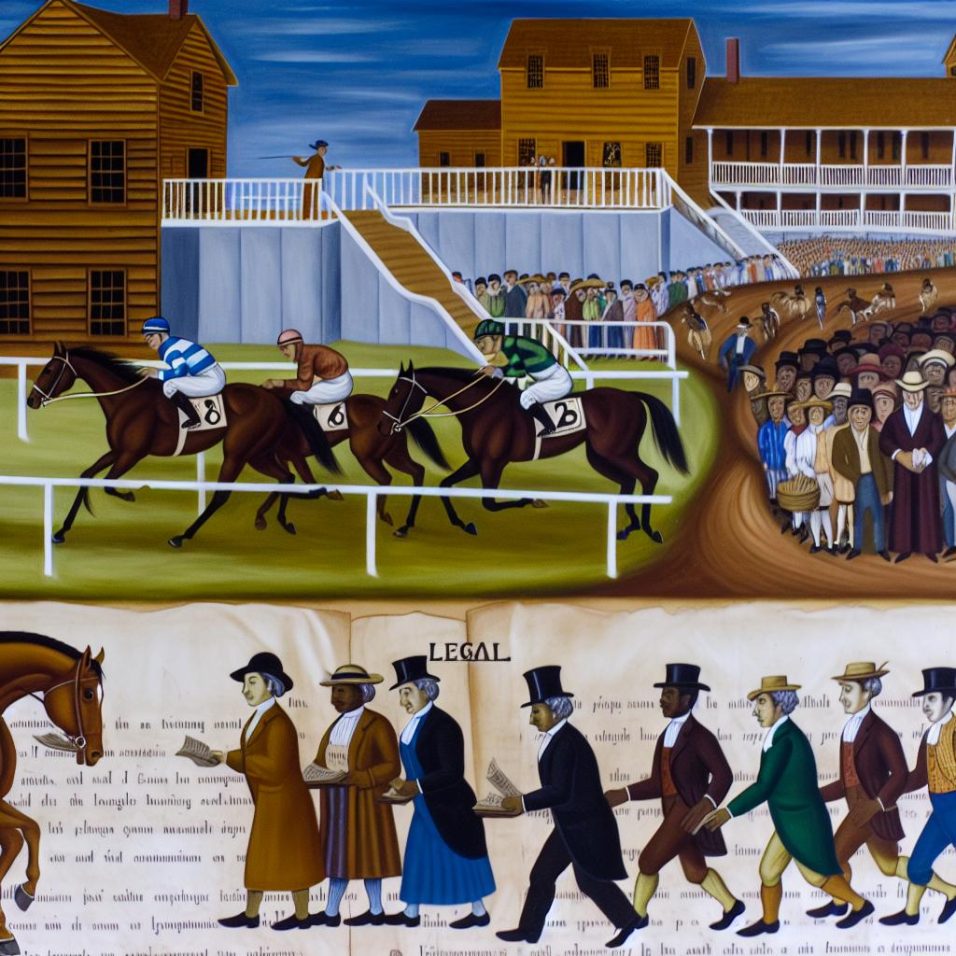Introduction
Horse racing in Virginia has gone through considerable legislative transformations over the decades, indicative of broader changes in public sentiment and economic dynamics. Initiated as an unregulated sport, horse racing eventually drew attention to the need for governance due to rising concerns over gambling and its societal impacts. This article embarks on a detailed exploration of the evolution of horse racing regulations in the state of Virginia, examining how these changes have impacted the sport and the various industries tied to it.
Early Regulations
In the formative years of horse racing in Virginia, the sport existed largely without formal regulation. During this period, horse racing was a vibrant part of the community, yet as its popularity surged, so did concerns regarding the gambling activities associated with it. By the mid-20th century, cognizant of gambling’s potential socio-economic ramifications, the state began instituting statutes to promote fair competition and diminish adverse consequences linked to gambling. These regulations laid the groundwork for structuring and professionalizing the sport within the state.
The Virginia Racing Commission
A landmark development in the oversight of horse racing in Virginia was the establishment of the Virginia Racing Commission in 1988. This commission bore the responsibility of overseeing horse racing in its entirety across the state, including duties such as licensing participants and enforcing racing laws. The creation of this overseeing body was crucial in enforcing ethical standards and ensuring that horse racing activities adhered to legal stipulations. By embodying accountability and transparency, the commission played an instrumental role in fostering a regulated environment for horse racing in Virginia.
Pari-Mutuel Betting
One pivotal regulatory change implemented by the Virginia Racing Commission was the legalization of pari-mutuel betting. This betting system aggregates all wagers into a pool, subtracts a management fee, and then disperses the remaining funds to participants who selected the victorious horses. The introduction of pari-mutuel betting was aimed at creating a controlled betting structure, thereby upholding the sport’s integrity by offering a transparent wagering system.
Off-Track Betting and Advance Deposit Wagering
Acknowledging the necessity to broaden the reach of horse racing and meet the preferences of enthusiasts unable to attend live fixtures, Virginia diversified its legalized betting modalities. The inception of Off-Track Betting (OTB) facilities signified a move towards inclusivity by allowing patrons to place bets on races conducted elsewhere. Subsequently, the legalization of Advance Deposit Wagering (ADW) marked yet another significant advancement, permitting bettors to engage in wagering through online platforms after establishing a funded account. Both these developments illustrated an effort to enhance accessibility while maintaining regulatory oversight.
The 2018 Legislative Changes
Colonial Downs’ resumption of horse racing operations in 2018 acted as a catalyst for additional legislative updates. This period saw the introduction of historical horse racing (HHR) machines, which signify a fusion between traditional horse racing elements and slot machine-like gaming. By allowing bettors to place wagers on historical races through these gaming terminals, a new layer of excitement and revenue potential was introduced to the industry. This legislative amendment was instrumental in reinvigorating interest in horse racing within Virginia, offering a contemporary twist while augmenting revenue streams.
Safety and Welfare Regulations
Complementing financial and operational reforms, Virginia has also intensified its efforts to enhance racehorse safety and welfare regulations. These regulations are designed to ensure ethical treatment of racehorses, encompassing guidance on appropriate care, training, and racing conditions. Such measures aim to safeguard the welfare of the horses, ensuring that the competition remains humane and ethical. This focus on horse welfare serves to maintain public confidence in horse racing, underscoring the state’s commitment to prioritizing animal welfare alongside sporting interests.
Conclusion
In summary, the development of horse racing legislation in Virginia underscores a continuous balancing endeavor between fostering a celebrated sport and upholding ethical standards. By remaining adaptive to modern-day challenges and embracing technological innovations, Virginia demonstrates a progressive model of regulatory development in horse racing. These efforts suggest that as external conditions evolve, Virginia will persist in refining its regulatory practices associated with horse racing, ensuring sustainable growth and ethical governance. The state’s methodical approach to regulation not only addresses current demands but sets a precedent for adaptable and sound legislative practices in the future.


